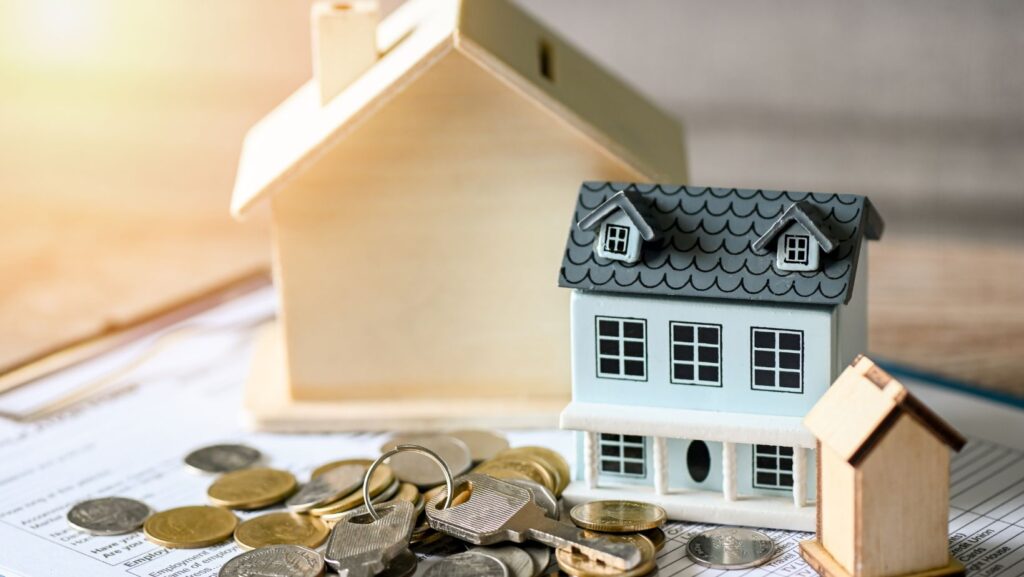Buying a home is a significant milestone in one’s life, often seen as a rite of passage into adulthood and financial independence. It’s a decision that intertwines personal aspirations with substantial financial commitments. Yet, beyond the surface of homeownership lies a strategic move towards achieving two critical financial goals simultaneously: building equity and securing long-term savings.
Buying A Home Achieves Which Two Financial Goals At The Same Time?
Building Equity Over Time
 Buying a home achieves the financial goal of building equity over time. Equity refers to the portion of the property that the homeowner actually owns, which is the current market value of the house minus any remaining mortgage payments. As homeowners make monthly mortgage payments, they reduce the principal amount owed, increasing their home equity. Additionally, if the value of the property appreciates over time due to market conditions or improvements made to the home, the equity increases even more. This built-up equity represents a significant financial asset for homeowners, offering them financial flexibility. They can borrow against it, refinance the mortgage under more favorable terms, or sell the property at a profit. Thus, investing in a home is not merely about securing a place to live but also about steadily growing a financial investment that can pay off in the long term.
Buying a home achieves the financial goal of building equity over time. Equity refers to the portion of the property that the homeowner actually owns, which is the current market value of the house minus any remaining mortgage payments. As homeowners make monthly mortgage payments, they reduce the principal amount owed, increasing their home equity. Additionally, if the value of the property appreciates over time due to market conditions or improvements made to the home, the equity increases even more. This built-up equity represents a significant financial asset for homeowners, offering them financial flexibility. They can borrow against it, refinance the mortgage under more favorable terms, or sell the property at a profit. Thus, investing in a home is not merely about securing a place to live but also about steadily growing a financial investment that can pay off in the long term.
Potential for Passive Income
Another critical financial goal achieved by buying a home is the potential for generating passive income. Homeowners have the opportunity to rent out all or part of their property, which can provide a steady income stream. This passive income can help cover the mortgage payments, property taxes, and maintenance costs, making homeownership more affordable. Additionally, rental income can contribute to the owner’s overall income, enhancing their financial stability and ability to save or invest in other areas. In markets with high demand for rentals, property owners might even charge premium rent, further increasing the profitability of their investment.
Examining the Long-Term Investment Aspect of Buying a Home
Appreciation of Property Value
 Buying a home stands as a solid long-term investment primarily because of the potential for property value appreciation. Over time, real estate generally increases in value, transforming a home purchase into a financially strategic move that aligns with securing a valuable asset. This upward trend in property value can substantially enhance an individual’s net worth, making homeownership a pivotal step towards achieving financial stability and growth. Historical data supports the expectation of appreciation, although rates can vary based on location, market conditions, and property type. Homeowners who invest in maintaining and upgrading their property often see even higher returns, further amplifying the investment aspect of buying a home.
Buying a home stands as a solid long-term investment primarily because of the potential for property value appreciation. Over time, real estate generally increases in value, transforming a home purchase into a financially strategic move that aligns with securing a valuable asset. This upward trend in property value can substantially enhance an individual’s net worth, making homeownership a pivotal step towards achieving financial stability and growth. Historical data supports the expectation of appreciation, although rates can vary based on location, market conditions, and property type. Homeowners who invest in maintaining and upgrading their property often see even higher returns, further amplifying the investment aspect of buying a home.
Tax Advantages for Homeowners
Homeowners also benefit from significant tax advantages that contribute to the financial goals achieved through buying a home. The Internal Revenue Service (IRS) provides various deductions for homeowners, such as mortgage interest and property taxes, which can reduce taxable income. These tax benefits enhance the financial attractiveness of buying a home by lowering the annual tax liability for homeowners. For many, the ability to deduct mortgage interest and property taxes from their federal income taxes serves as a critical factor in their decision to purchase a home. Moreover, certain closing costs and home improvements may also be tax-deductible, offering additional financial incentives.
The Savings Component of Purchasing a Property
Reducing Living Expenses by Avoiding Rent
Buying a home is a significant financial decision that brings to the forefront the prospect of achieving multiple financial goals simultaneously. One of the foremost advantages is the drastic reduction in living expenses through the avoidance of rent. This facet of homeownership not only helps in saving monthly payments but also contributes to the stabilization of one’s financial outlay over time.
Rent payments, unlike mortgage payments, offer no return on investment and are subject to annual increases due to inflation and market dynamics. In contrast, purchasing a home stabilizes these monthly outlays and, over time, eliminates them entirely once the mortgage is paid off.


